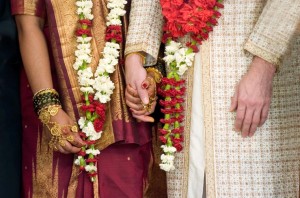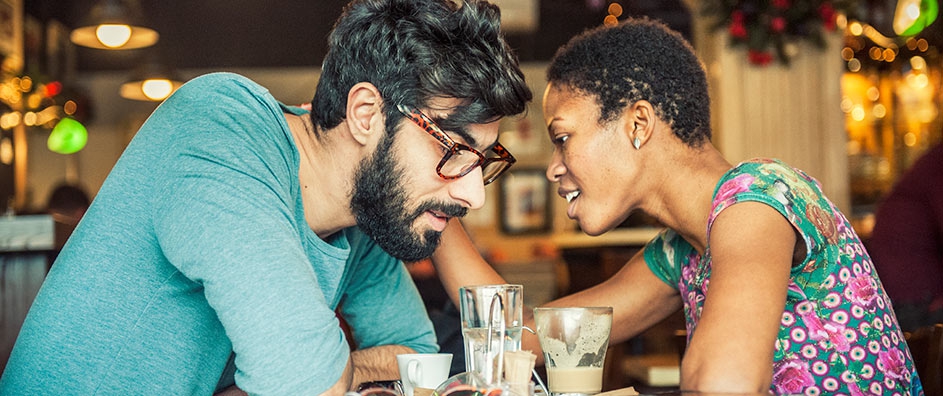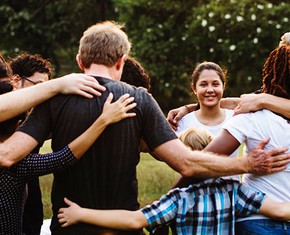The views expressed in our content reflect individual perspectives and do not represent the authoritative views of the Baha'i Faith.
With increased mobility, a shrinking planet, and a wider sense of global openness to the idea of intercultural marriage, more and more cross-cultural couples are finding love and joining their lives together.
For Baha’is, a common link exists between the practical implications of intercultural unions and the oneness of the human family. When individuals come from very different cultural backgrounds, different races, or different ethnicities, the fundamental Baha’i principle of the oneness of the entire human race helps them look for points of harmony. Abdu’l-Baha put it this way:
Baha’u’llah hath said that the various races of humankind lend a composite harmony and beauty of color to the whole. Let all associate, therefore, in this great human garden even as flowers grow and blend together side by side without discord or disagreement between them. – Abdu’l-Baha, The Promulgation of Universal Peace, pp. 68-69.
But even though intercultural unions align with the Baha’i spiritual principles, that doesn’t necessarily make them easy to establish. It can be challenging to learn about each other’s culture as a couple, and for parents and families to do so as well.
When individuals grow up in an environment, they become accustomed to it. In cross-cultural marriages, the couple often discovers the difficulty of recognizing that some aspects of their lives are very different than others might be used to. What we each think of as normal and acceptable in our own culture may look abnormal and unacceptable through the lens of someone else’s cultural understanding.
Intercultural couples can benefit from spending time learning about each other’s culture through a variety of experiences. As they reflect on and discuss these experiences, working to eliminate assumptions, their understanding will grow, and the combination of the best traits and characteristics of their respective cultures can often make their union stronger and more resilient.
When a couple meets in one country, their experiences can become very different when they live somewhere else. If one person will be moving and living in the other’s culture after marriage, visits to the culture during courtship will definitely help ease the transition. Regardless of where the couple decides to live, though, each person will behave and react differently based on their own cultural experiences. Culture affects many aspects of a relationship, including how women are treated, acceptable social activities, financial responsibilities, ways of communicating, parenting, family relationships, and more.

Also, remember that the practices of marriages can vary dramatically from culture to culture. What could seem normal in one culture can be offensive or seen as strange or “backward” in another.
In some intercultural marriages, a presumption of cultural superiority can creep in if the couple isn’t careful to avoid it. If one marriage partner believes his or her culture is more advanced or enlightened than the other person’s, difficulties will usually follow. Any attitude of superiority will interfere with achieving unity. From a Baha’i perspective, no single culture, race, or nation can ever have any claim of superiority over another, and marriages occurring across various cultures will need to recognize that primary principle to succeed.
As these egalitarian, justice-centered spiritual principles and the recognition of the oneness of mankind spread, the world will see more intercultural marriages, and eventually they may have more similarities than differences. Today, however, no matter where we come from or what culture we call our own, it’s always wise to seek cultural understanding of your potential spouse.
















Comments
Sign in or create an account
Continue with Googleor